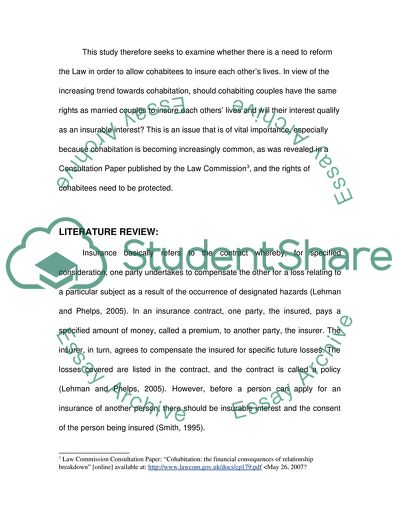Cite this document
(Reforming The Principles of Insurable Interests in English Insurance Research Paper, n.d.)
Reforming The Principles of Insurable Interests in English Insurance Research Paper. https://studentshare.org/law/1707911-research-proposal-on-topic-reforming-of-principles-of-insurable-interest-in-english-law
Reforming The Principles of Insurable Interests in English Insurance Research Paper. https://studentshare.org/law/1707911-research-proposal-on-topic-reforming-of-principles-of-insurable-interest-in-english-law
(Reforming The Principles of Insurable Interests in English Insurance Research Paper)
Reforming The Principles of Insurable Interests in English Insurance Research Paper. https://studentshare.org/law/1707911-research-proposal-on-topic-reforming-of-principles-of-insurable-interest-in-english-law.
Reforming The Principles of Insurable Interests in English Insurance Research Paper. https://studentshare.org/law/1707911-research-proposal-on-topic-reforming-of-principles-of-insurable-interest-in-english-law.
“Reforming The Principles of Insurable Interests in English Insurance Research Paper”. https://studentshare.org/law/1707911-research-proposal-on-topic-reforming-of-principles-of-insurable-interest-in-english-law.


